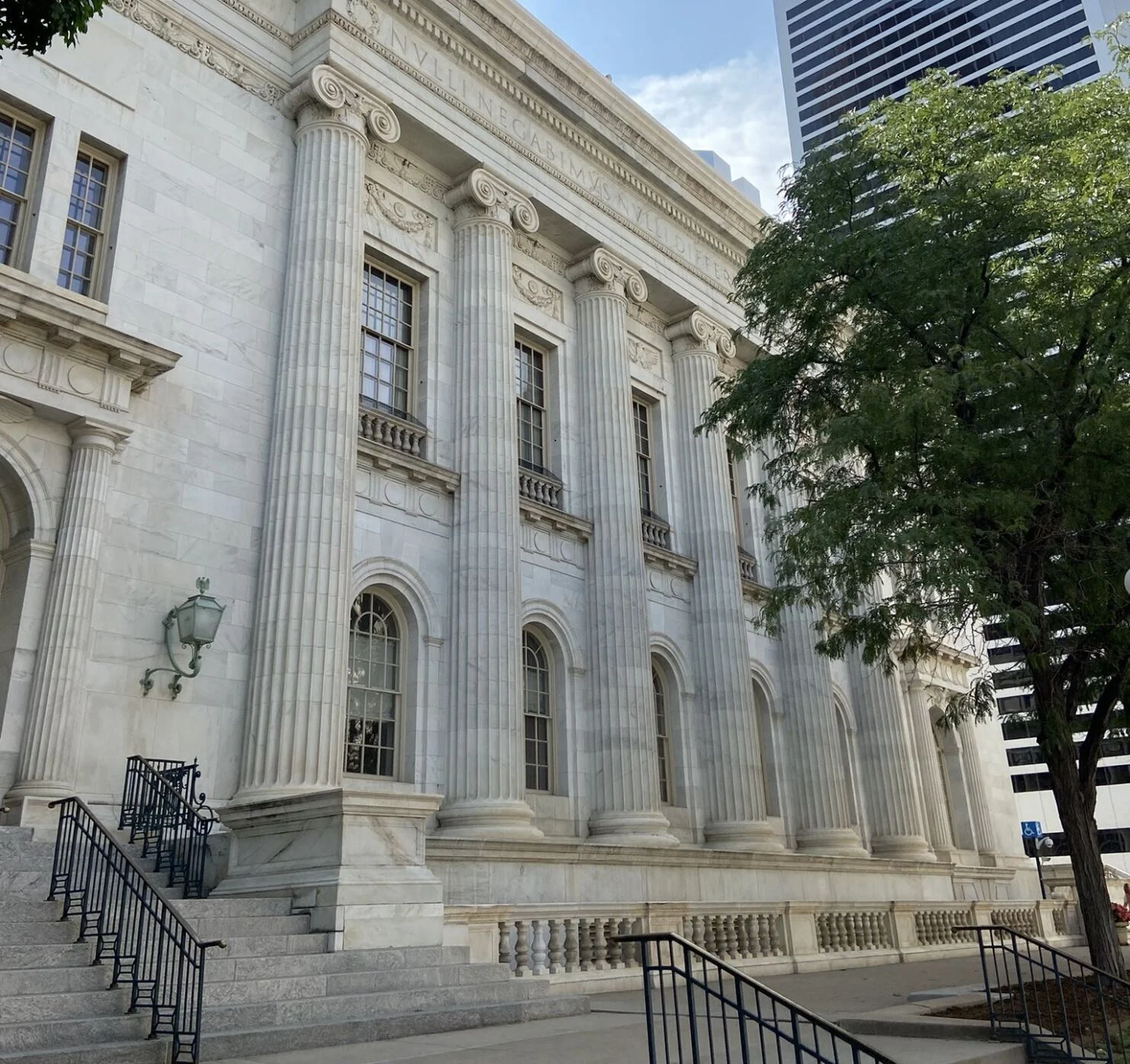
The Byron R. White U.S. Courthouse in Denver, which houses the Court of Appeals for the 10th Circuit.
By Michael Karlik – August 23, 2022
Even though a Fort Collins letter carrier was unable to sue the U.S. Postal Service for discrimination in time because of false information union leaders allegedly provided her, the federal appeals court based in Denver agreed Lynda Hickey is now barred from suing the union itself for its misrepresentations.It was unclear why officers of the National Association of Letter Carriers’ local branch incorrectly told Hickey and her husband that she could not file a federal claim of discrimination at the same time she was pursuing her union grievance. But Hickey ultimately discovered that she had provided notice to the U.S. Equal Employment Opportunity Commission (EEOC) too late to hold the Postal Service liable for her 2017 termination.
Hickey then turned to the union, alleging NALC had committed negligence under Colorado law with its leaders’ incorrect advice.
On Monday, however, a three-judge panel of the U.S. Court of Appeals for the 10th Circuit determined Hickey’s claims were connected not to state law, but to her union’s collective bargaining agreement — and were also filed too late for the court to consider them.
Section 301 of the Labor Management Relations Act gives federal courts the ability to hear lawsuits involving a labor union’s collective bargaining agreement. The law also charges unions with a duty of fair representation, meaning they should serve the interests of their members in good faith and fairness. Where such contracts exist, those agreements, and not state law, largely dictate workers’ rights.
“Were unionized workers free to sidestep their contracts and sue under state law, the exclusivity of union representation and the primacy of the collective bargaining agreement would be diminished,” Rebecca Hanner White, the former dean of the University of Georgia School of Law, wrote in 1990.
Hickey began working for the Postal Service in 2000 and belonged to NALC. She was reportedly the only deaf letter carrier at her Fort Collins facility, and could only hear approximately one-third of the words spoken to her. She made several attempts to have NALC file grievances on her behalf seeking accommodations for her disability, but the union allegedly replied that it had no responsibility to do so under the collective bargaining agreement.
In late 2017, the new manager of the Fort Collins location allegedly believed Hickey was faking her deafness. An employee reportedly “manufactured” a confrontation by sneaking up behind Hickey and yelling in her face. Hickey then pushed the employee away, prompting the manager to terminate her.
Hickey’s husband allegedly asked the local president of NALC, Danielle Fake-Moorman, whether Hickey could file a discrimination claim with the EEOC at the same time she pursued a union grievance over her discipline. Fake-Moorman wrongly told him Hickey could not. It was the same answer a union steward had allegedly told the Hickeys years prior.
In May 2018, an arbitrator decided the Postal Service validly terminated Hickey. She filed a discrimination claim and followed it up with a lawsuit against the Postal Service, only to have the 10th Circuit dismiss her claims in August 2020. The court found she waited too long to notify the EEOC, a necessary step to pursuing a lawsuit.
Hickey also sued her union for negligence under Colorado law. She claimed NALC had a duty to provide correct information about filing her EEOC claim because “the nature of the relationship between a union and its member is such that the union occupies a place of authority when it comes to advising its members of their employment rights.”
Based on that argument, U.S. Magistrate Judge Scott T. Varholak concluded he would need to interpret the collective bargaining agreement to determine whether NALC had such a responsibility to Hickey. Therefore, her claims fell under Section 301 and not Colorado law, and Hickey had filed suit well beyond the Section 301 deadline.
Although Hickey attempted to argue on appeal the union’s actions in this instance fell outside of the collective bargaining agreement, the 10th Circuit judges believed the answer was not that simple.
“Why does a union owe Ms. Hickey anything?” asked Judge Jerome A. Holmes. “The only basis for that position of authority is the collective bargaining agreement, is it not?”
The panel ultimately decided Hickey’s complaint alleged NALC had a duty to provide her with accurate information based on the relationship the collective bargaining agreement established through her union. She had cited her status as a “dues-paying union member” in claiming she was entitled to correct advice, noted Judge Joel M. Carson III in the panel’s Aug. 22 decision.
“That duty preempts any duties state law might impose on defendant because of its status as a union. Thus, the duty of fair representation provides plaintiff’s only possible remedy for defendant’s bad advice,” Carson added.
Hickey v. National Association of Letter Carriers
Source: DenverGazette.com
